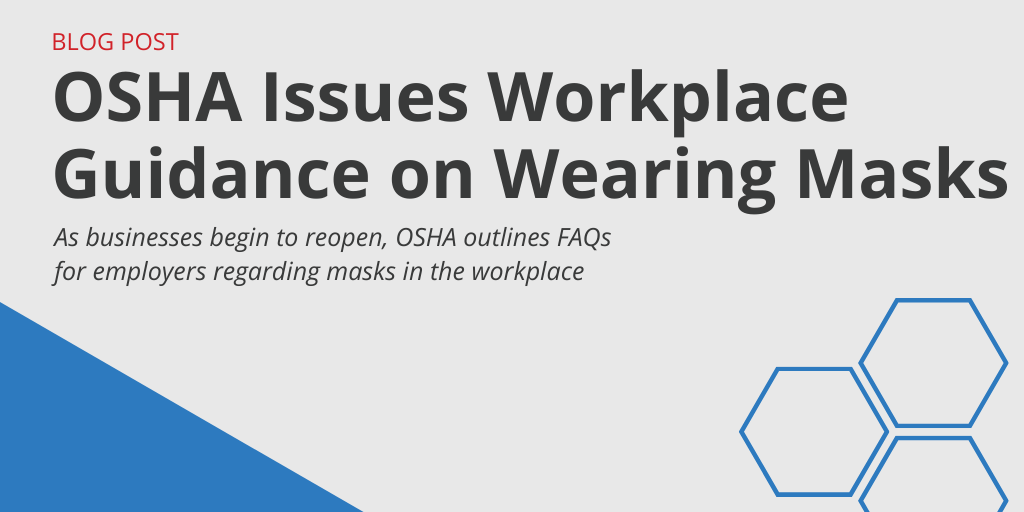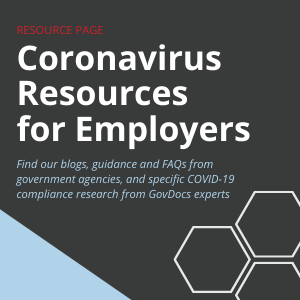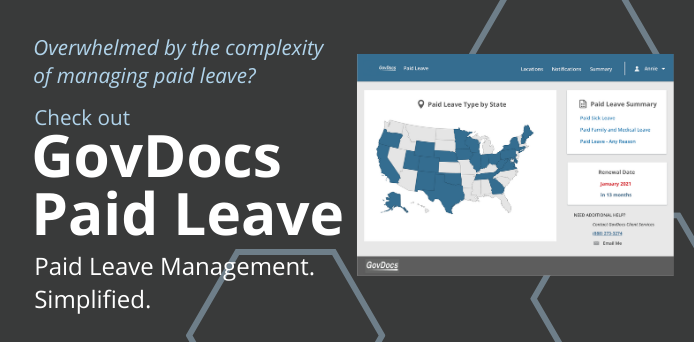EMPLOYMENT LAW NEWS
OSHA Issues Workplace Guidance on Wearing Masks
By Kris Janisch
Published June 18, 2020

As businesses begin to reopen, OSHA outlines FAQs for employers regarding masks in the workplace.
The Occupational of Safety and Hazzard Agency (OSHA) recently issued guidance regarding wearing masks in the workplace as the nation begins to allow more businesses to operate in the face of the coronavirus pandemic.
While state regulations for reopening vary widely, the new guidance from OSHA is meant to help employers comply with local rules, most of which at least encourage employees to wear face coverings.
Also, OSHA notes that its guidance is not legally binding and is intended to assist employers in maintaining a healthy workplace.
Defining Mask Types
Firstly, OSHA defines different types of face coverings. Details of each follow.
Cloth face coverings:
- Often homemade items (bandanas or made from other fabrics)
- Not considered personal protective equipment (PPE)
- May not prevent against COVID-19 due to poor fit or filtration
- May be reused after proper washing
Surgical masks:
- Generally cleared as medical devices by the U.S. Food and Drug Administration
- Considered PPE
- Still must be worn correctly to ensure prevention
- Should be disposed of after use
Respirators:
- Filtering face covers
- Must be certified by the National Institute for Occupational Safety and Health
- Require training, fit testing and oversight
- Need proper filter material (e.g., N95 or better)
Wearing Masks
At work, OSHA generally recommends that employers encourage their workers to wear masks.
As noted in a recent GovDocs webinar, employers are legally able to require an employee to wear a mask. Local regulations may also make it a requirement for workers.
Webinar – Back to Business: Top Employer Questions in a COVID-19 World
“If you’re not going to wear a mask, I don’t have a job for you,” said webinar host Kevin Mosher, a partner at Thompson Coe and founder of myHRgenius.
However, an employer may deem the wearing of cloth coverings a hazard, such as places where an employee may inhale chemicals that collect in cloth or exacerbate heat issues when they become damp. In such instances, employers may consider providing more robust face coverings.
Cloth face masks are also not considered a substitute for social distancing, according to OSHA, and because cloth masks are not considered PPE, it does not require employers to provide them to employees.
Respirators vs Surgical Masks
The last piece of guidance from OSHA says that employers must not use surgical masks or cloth face coverings when respirators are needed.
In general, employers should always rely on a hierarchy of controls that first includes efforts to eliminate or substitute out workplace hazards and then uses engineering controls (e.g., ventilation, wet methods), administrative controls (e.g., written procedures, modification of task duration), and safe work practices to prevent worker exposures to respiratory hazards, before relying on personal protective equipment, such as respirators.
Should employees need respirators, OSHA’s guidance describes enforcement discretion around use of respirators, including situations where:
- It may be necessary to extend the use of or reuse certain respirators
- Use respirators beyond their manufacturer’s recommended shelf life
- Use respirators certified under the standards of other countries or jurisdictions
Meanwhile, federal officials have outlined crisis strategies for healthcare workers when respirators are needed but not available. In that case, the specific work should be delayed “until feasible control measures are available.”
Conclusion
As states continue to allow more businesses to operate in the wake of COVID-19, masks are but one of many employment law concerns HR teams and company officials have to worry about.
Plus, reopening regulations differ across jurisdictions, meaning requirements for reopening will prove challenging for compliance teams.
As a recent lawsuit in Illinois demonstrates, employers should take care when devising a plan to reopen.
This Employment Law News blog is intended for market awareness only, it is not to be used for legal advice or counsel.
Keep Informed
with GovDocs Labor Law News

What is GovDocs?
GovDocs simplifies employment law compliance for large, multi-jurisdiction employers in the U.S. and Canada. The GovDocs software platform integrates three solutions in one convenient place to help you master the employment laws impacting your business. Whether you manage a postings, minimum wage or paid leave program, our products cut through research time, provide proactive insights into the everchanging landscape of employment laws and reduce the risk of noncompliance. The company is headquartered in St. Paul, Minn.
Have fewer than 30 locations?
The GovDocs Poster Store simplifies posting compliance for employers with less than 30 locations across all industries, offering a variety of posting products to meet your labor law compliance needs.



